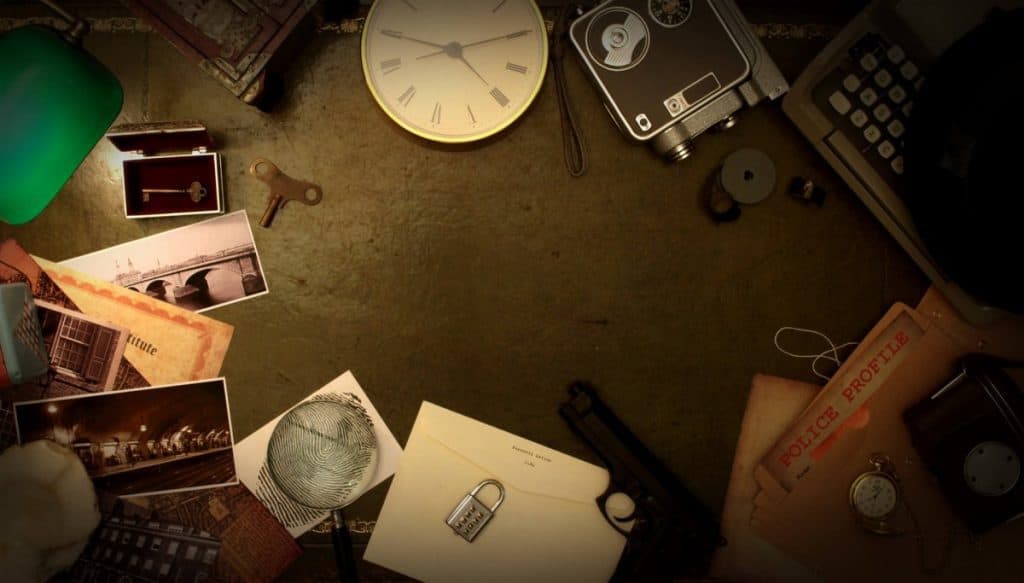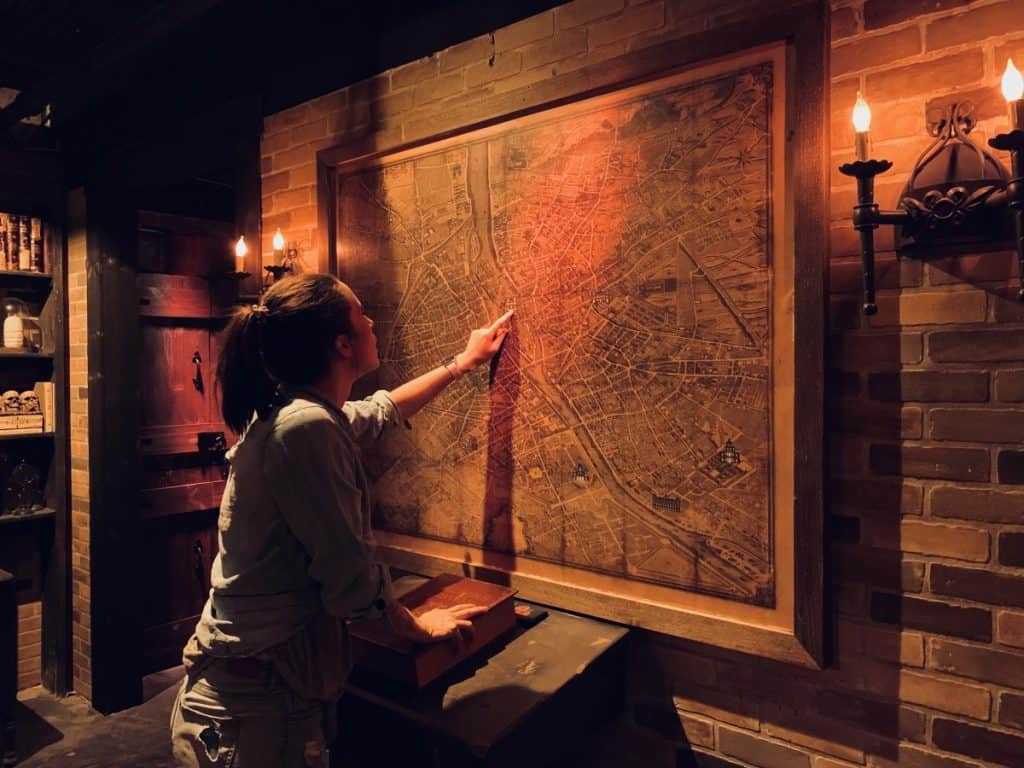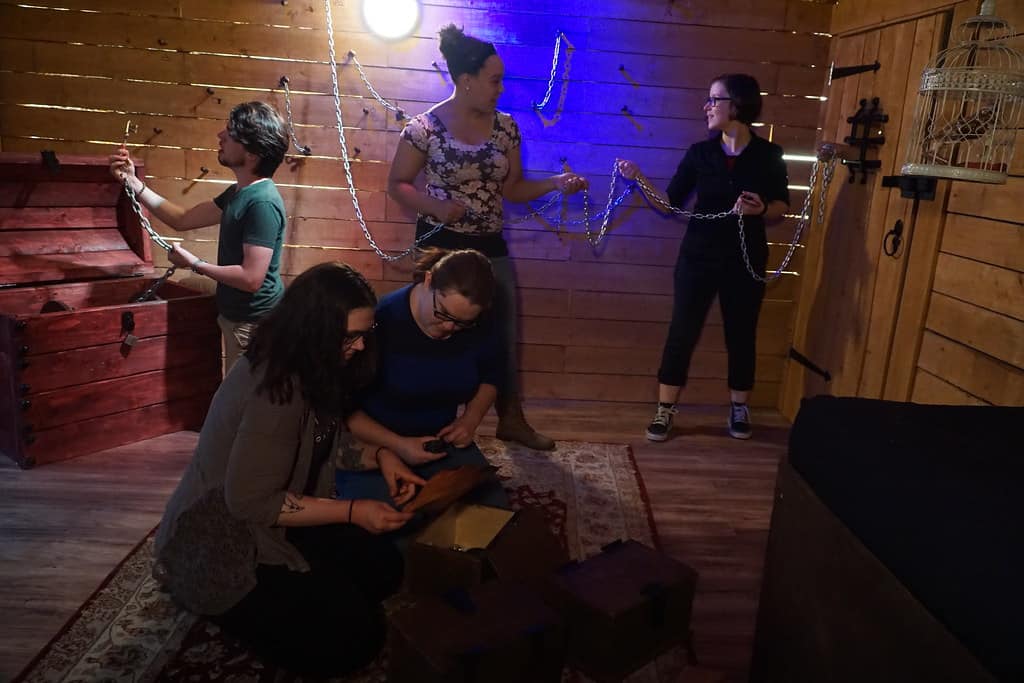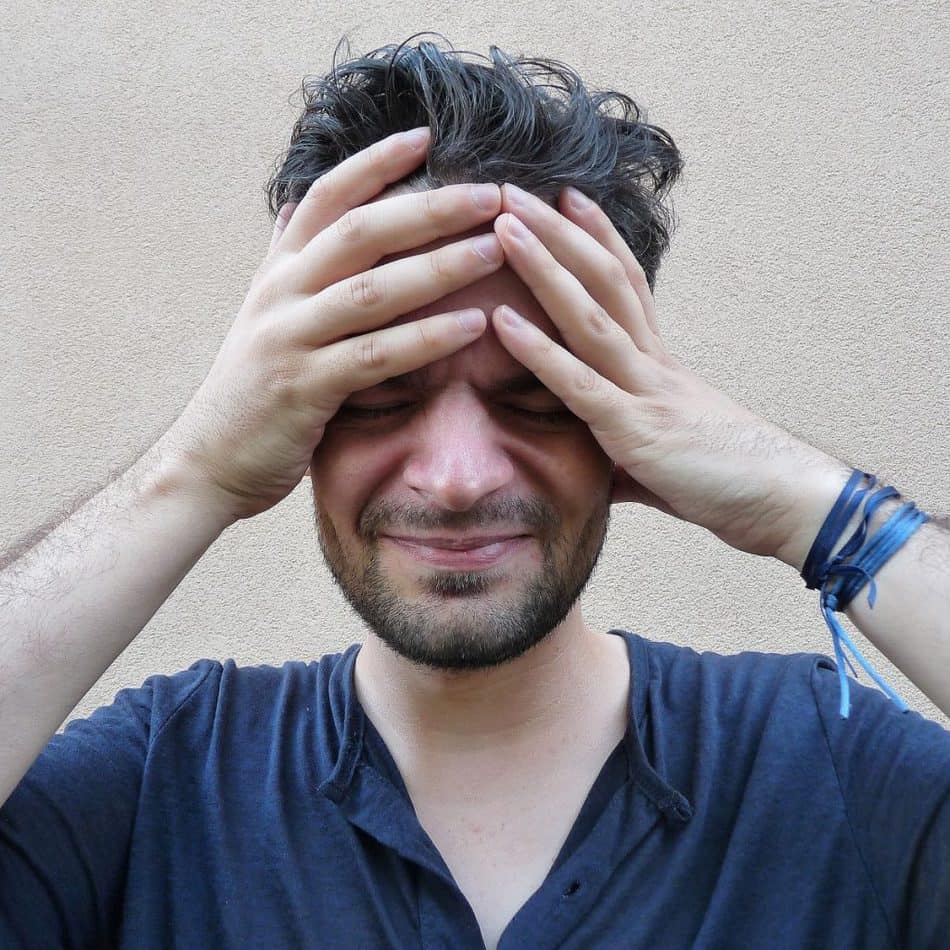
Did you have a sudden craving to be locked in a room with hidden clues? Even if this is not your first rodeo, I’ve got some very helpful tips that’ll guarantee you a faster escape on your next escape room game.
The best way to escape faster in an escape room game is to formulate a game plan ahead of time. Escaping faster doesn’t rely on primarily on solving the puzzles faster, but rather by creating more time to solve harder puzzles. By having a solid strategy ahead of time you will reduce the amount of time delegating the roles once the door are locked.
Creating the Perfect Escape Plan

Every problem that needs solving begins in the head. You analyze the problem or in this case, the puzzle ahead of time.
In order to create the perfect escape plan, you’ll need to do a little bit of research. Each escape room game has a theme, by doing a little bit of research ahead of time you can better connect the dots when you find clues.
Most of the clues that are in the game can be solved with a little bit of common sense and a little backstory; however that’s not always the case.
Sometimes, if you go in unprepared, you may find yourself perplexed by some of the clues because it requires a secondary level of understanding within that theme.
So, the best thing you can do is to educate yourself on the theme of the escape room game before the actual game, it could be the history of the them or the common objects used during the time period.
Going in with a little something is better than nothing.
Forming the Sherlock Team
Like I’ve mentioned before, as you continue to challenge yourself up the ladder in the realms of escape room, you’ll end up stumped on a puzzle you just can’t figure out.
Two heads are better than one and three heads are better than two.

Most people will just tell you that the key to winning is effective communication, while that’s true, but it leaves out the actual sauce.
In order to form the best detective team the world has ever known, you’ll need to recruit and find people that have different backgrounds and different interests.
Here is a good example from personal experience:
On one of the escape room game that I did a while back, the theme involved the detectives being “us”, we broke into the the mansion to find clues about a murder crime. We had only two hours to solve before the killer returns.
In this room, there were many clues and props that you would expect from a classic Hollywood mansion, but one of the props was about mapping out the stars and nobody knew anything about astronomy besides me, so had I not known about astronomy, we would have likely been stuck for the first 30 minutes or so trying to piece it together.

Another example that actually took me 30 minutes to solve was trying to remember where Gibraltar was and located on the map. Should have brought a cartographer or a human GPS.
So, as you can see, having a team with various background can drastic improve the speed of solving the puzzles as well as reduce the amount of time spent on solving each puzzle.
Divide and Conquer
With a finite amount of time, there’s only so much one person can do and that’s why you should delegate the work as much as possible.
Spread out in all corners of the room and search inward. This will reduce the number of run-ins that you have with other players or team members. Every time you bump heads with someone else, you’re losing valuable to crack the code.

If one person is working on something over here, it is unnecessary to stick by their side, because you are either getting in the way or you’re not utilizing your man power to the maximum efficiency.
By spreading out, you can collect multiple clues at the same time and by exposing yourself to be the first contact of the clue you are filtering out your initial search. I’ll explain this a bit more in this next section.
Go Over it Twice
In the panic, everyone is just trying their best to find something out of place, which means they’re clumsy and has tunnel vision.
The best thing you can do when you’re stuck on a puzzle is to ask for help from your teammates and go over the puzzle or clues twice.
Double-checking your work will leave no stones un-turned. Do not be shy and just postpone the puzzle simply because you can’t solve it. If you can’t that doesn’t mean that others can’t too, give each other a fair shot at solving it.
Don’t Overthink It

One of the mistakes that drains the most amount of time is by overthinking the complexity of the puzzle. Keep in mind that these puzzles are made to be solvable with the clues in the room and while analyzing the clues are necessary. Becoming too analytical about a clue can trap you in an infinite loop.
Here is a personal mistake that I’ve made:
There was this 3-digit combination lock that locked a box with a empty poker card box glued to it.
There was also a picture frame with the poker cards on the wall that had different suits and arrangements.
There was also a deck of cards on the counter.
I spent so much time trying to connect the dots of the poker cards mounted in the frame by counting the numbers of queens, how many hearts there were in the frame and how many cards per column that I didn’t notice that all I had to do was to pick up the deck of cards and find the missing cards in the deck to determine the 3-digits for cracking that lock open.
So, don’t overthink about the complexity of the puzzle. If you and everyone else have zero clues as to how to solve this puzzle, move on to the next puzzle. Don’t stand there and twiddle your thumbs hoping that something clicks.
Try it Anyway
Sometimes, the hardest part about a puzzle is refusing to believe it’s just that easy. I often found myself skipping an attempt because I thought to myself “there’s no way it’s this easy” and thus I won’t even bother trying.
Even if the key doesn’t look like it fit, it won’t hurt to try.
Certain puzzles are intended to be hard and trying out every key and combination is a fair tactics, although it might take a little bit of time, but when you get it right, it saves you a ton of time.
Shout It Out
With more elaborate escape room, you may have to search more than one room for your clues. If you’re all spread out, it will be hard to communicate especially if you’re mumbling under your breath. If you found something that can be a clue shout it out, let others know of your discovery.

A lot of the time the stars will align for you. You might find a rook and should out “Got a rook!” and someone else searching might come across a king or a pawn and shout “Hey! I’ve got a pawn over here”, That may begin the search for more chess pieces and grant you insights to other clues.
Move Quickly
It might not seem like much, but being quick on your feet or fast with your hands can save a decent amount of time. A little by little, these time saving moves adds up to minutes saved.
Although, some establishments are against players throwing clues or props around the room, but if you can toss a key across the room instead of walking or running over there to try it yourself, you can save time effectively.
Winning isn’t Everything
You can apply these strategies that I’ve given you, but everything is possible and failing to escape is one of them.
No one can escape 10 out 10 times without some close calls. I was on a winning streak until one particular game that ended my perfect record. We were 10 seconds away from getting the door open.
Losing is not a good feeling, but what matters is that you gave it your all and that you’ve enjoyed yourself with your teammates in this indoor activity.
Understand that losing is okay, it’s a bitter sweet moment, but escape room was never about winning. It was all about the game.
You’ll learn from your mistakes and you’ll be even more determine to win on your next escape. By applying these tips I’ve given you, you will drastically increase the odds of a speedy escape, so good luck!
